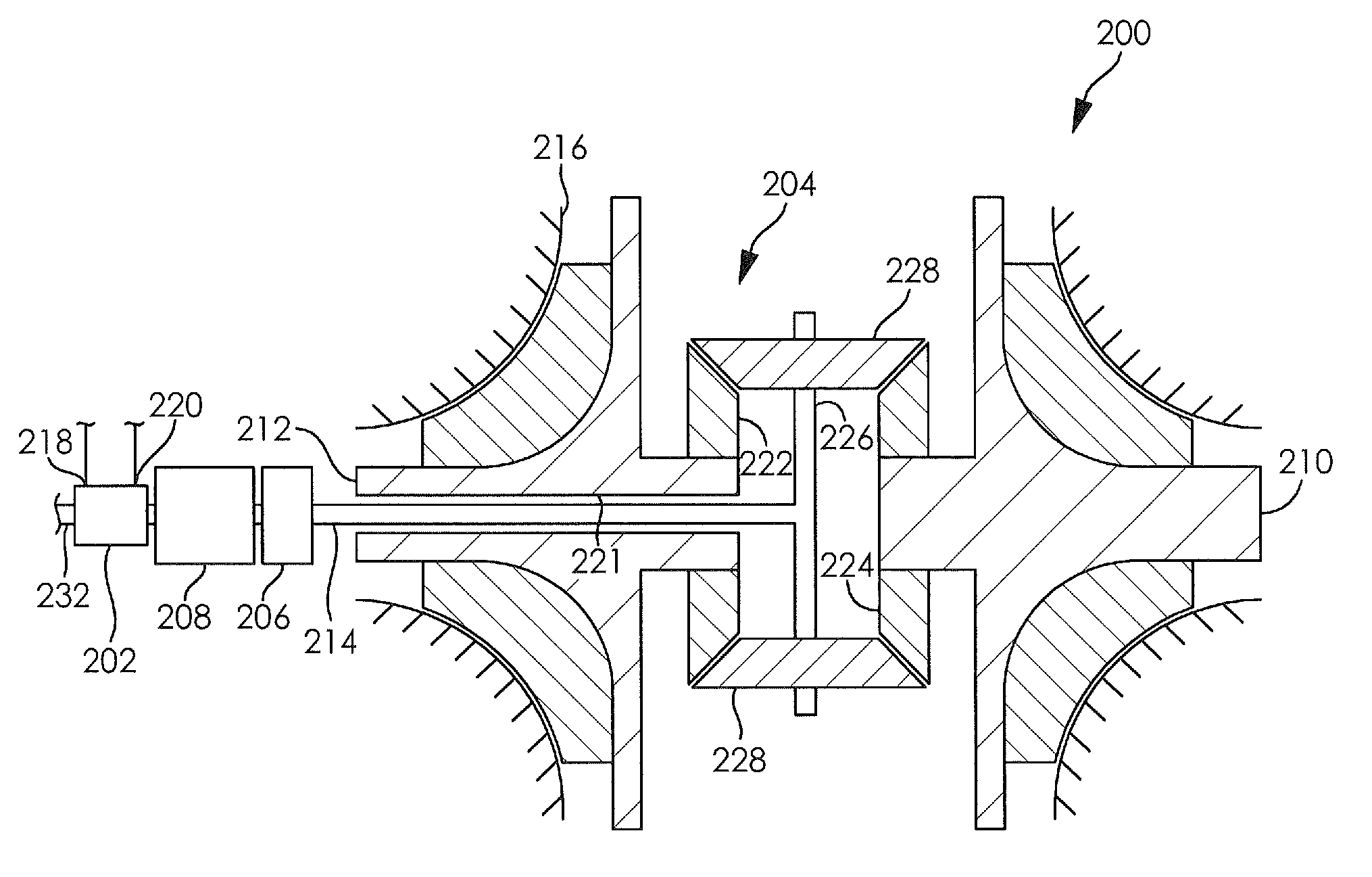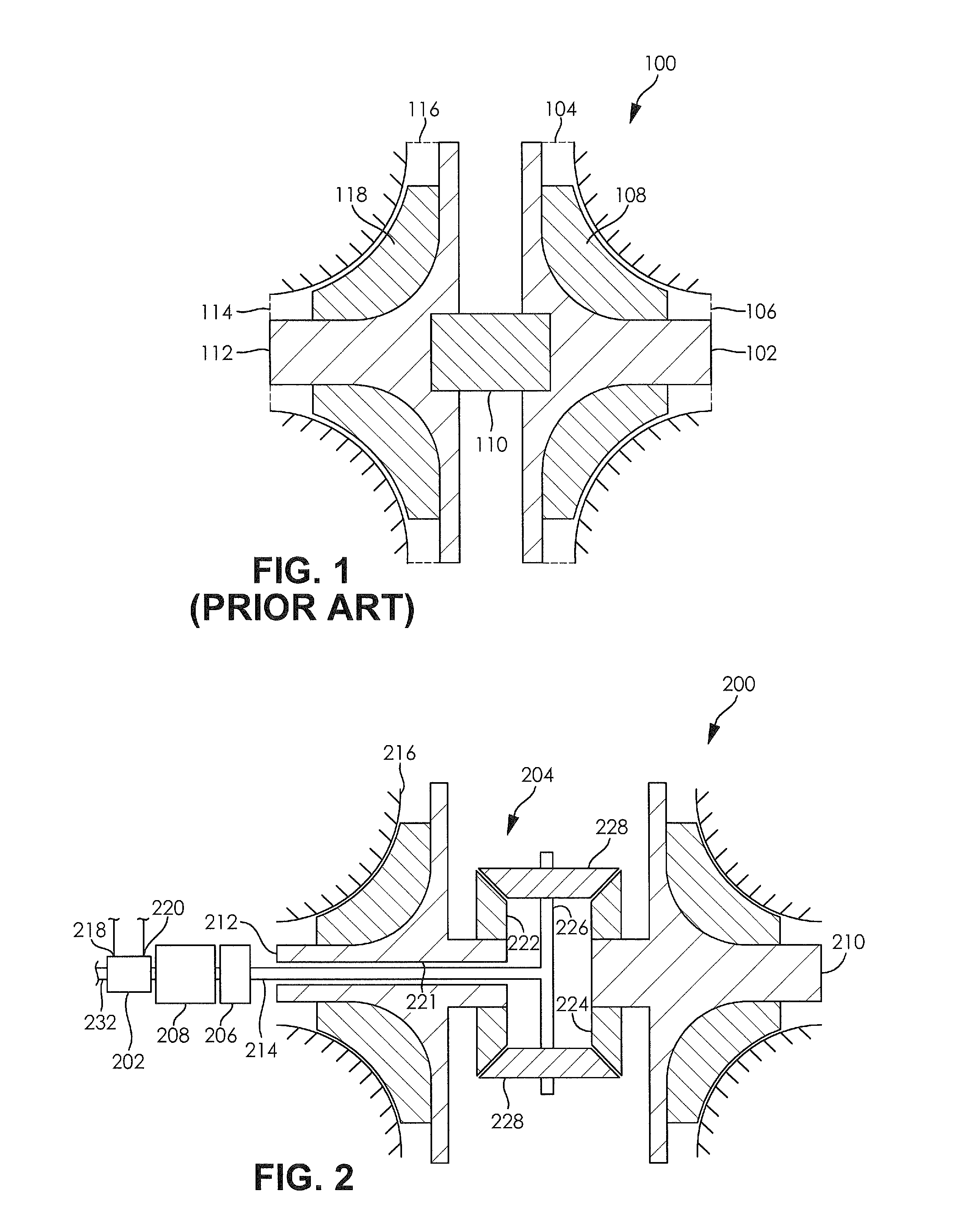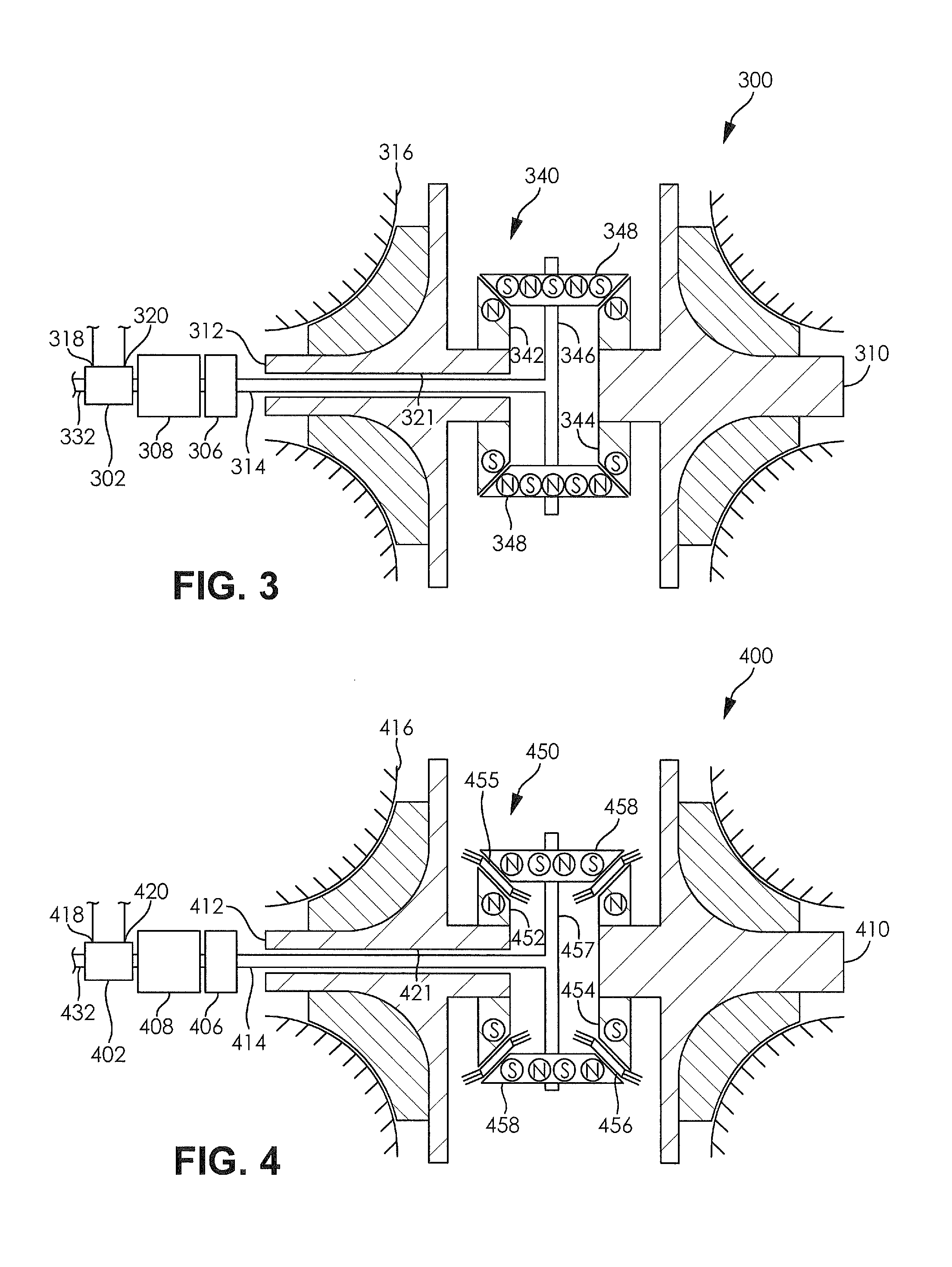Internal combustion engine coupled turbocharger with an infinitely variable transmission
a technology of transmission and internal combustion engine, applied in the direction of machines/engines, software deployment, etc., can solve the problems of limited airflow, affecting the efficiency of internal combustion engine, so as to reduce the turbo lag, reduce the boost threshold of the turbocharger, and increase the efficiency of the internal combustion engine
- Summary
- Abstract
- Description
- Claims
- Application Information
AI Technical Summary
Benefits of technology
Problems solved by technology
Method used
Image
Examples
Embodiment Construction
[0025]It is to be understood that the invention may assume various alternative orientations and step sequences, except where expressly specified to the contrary. It is also to be understood that the specific devices and processes illustrated in the attached drawings, and described in the following specification are simply exemplary embodiments of the inventive concepts defined herein. Hence, specific dimensions, directions or other physical characteristics relating to the embodiments disclosed are not to be considered as limiting, unless expressly stated otherwise.
[0026]FIG. 2 schematically illustrates a turbocharger 200 for use with an internal combustion engine 202. The turbocharger 200 is in driving engagement and fluid communication with the internal combustion engine 202. The turbocharger 200 is in driving engagement with the internal combustion engine 202 through a differential device 204, a ratio adjusting device 206, and an infinitely variable transmission 208. Typically, th...
PUM
 Login to View More
Login to View More Abstract
Description
Claims
Application Information
 Login to View More
Login to View More - R&D
- Intellectual Property
- Life Sciences
- Materials
- Tech Scout
- Unparalleled Data Quality
- Higher Quality Content
- 60% Fewer Hallucinations
Browse by: Latest US Patents, China's latest patents, Technical Efficacy Thesaurus, Application Domain, Technology Topic, Popular Technical Reports.
© 2025 PatSnap. All rights reserved.Legal|Privacy policy|Modern Slavery Act Transparency Statement|Sitemap|About US| Contact US: help@patsnap.com



